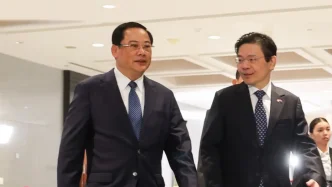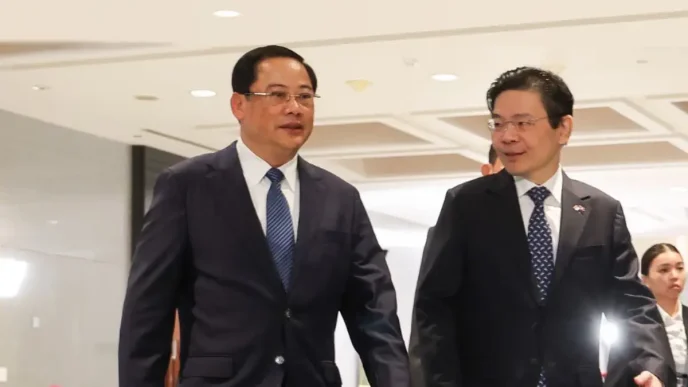Singapore has swiftly positioned itself at the forefront of digital finance, emerging as a global hub for tokenized assets and blockchain technology. With a supportive regulatory environment, cutting-edge initiatives, and a growing ecosystem of over 1,400 fintech companies, the city-state is redefining how financial markets operate. As blockchain moves from experimental pilots to real-world applications, Singapore’s strategic vision is drawing international giants and startups alike, cementing its role as a fintech powerhouse in Southeast Asia and beyond.
A Regulatory Framework That Fuels Innovation
Central to Singapore’s success is the proactive approach of the Monetary Authority of Singapore (MAS), which has crafted a regulatory framework that balances innovation with stability. Since 2022, initiatives like Project Guardian have provided a sandbox for financial institutions to explore tokenized assets and decentralized finance (DeFi) in a controlled environment. This project, initially a testing ground, is now shifting toward practical implementation, enabling institutions to integrate tokenized finance into their core operations using public blockchains.
Infrastructure programs such as Global Layer One (GL1) further support this transition by fostering collaboration among major players. In 2024, industry heavyweights HSBC and Euroclear joined GL1, alongside early participants like JPMorgan and Citi, signaling strong confidence in Singapore’s blockchain ecosystem. These partnerships underscore the city-state’s commitment to leading real-world asset tokenization, a market that some projections estimate could reach $19 trillion by 2033.
Singapore’s regulatory sandboxes, alongside platforms like APIX (API Exchange) and Project Orchid, allow companies to experiment and scale innovative solutions with minimized risk. This forward-thinking approach has not only attracted global financial institutions but also made Singapore a model for other nations aiming to harness digital finance.
Project Guardian Expands Its Ambitions
Looking ahead to 2025, Project Guardian is set to broaden its scope, focusing on transforming debt markets through tokenization. The International Capital Market Association (ICMA) has taken the helm of this initiative, aiming to streamline and modernize traditional financial instruments using blockchain technology. On August 5, 2025, the Investment Management Association of Singapore (IMAS) and the UK’s Investment Association (IA) also joined the project, further expanding its international reach and expertise in asset tokenization.
These developments highlight Singapore’s ambition to remain at the cutting edge of financial innovation. By bringing together global and regional stakeholders, Project Guardian is not just a local initiative but a blueprint for how blockchain can reshape capital markets worldwide. The focus on debt markets, in particular, addresses a critical area of finance where transparency and efficiency can yield significant benefits for investors and issuers alike.
Tokenization: A Game-Changer for Investors
Tokenization—the process of converting real-world assets into digital tokens on a blockchain—is revolutionizing investment by enhancing liquidity, accessibility, and returns. In Singapore, tokenized assets range from real estate to Treasury Bills, making high-value investments available to a broader audience. Franklin Templeton (a financial services organization), for instance, recently launched the first tokenized fund accessible to all Singapore investors, approved by MAS, with a minimum investment of just $20. This low entry barrier allows retail investors to participate in markets previously reserved for institutions, while faster trading and easier fund management add to the appeal.
Yet, challenges remain. Regulatory hurdles continue to pose obstacles for institutions seeking to adopt tokenized finance at scale. Permissioned DeFi, which integrates blockchain tools with compliance features like on-chain identity verification, offers a solution by ensuring that decentralized technologies align with legal and operational standards. With the right infrastructure, tokenized assets are becoming not just viable but transformative, positioning Singapore as a magnet for global investment.
Transforming Payments with Stablecoins and Interoperability
As one of Asia’s largest foreign exchange (FX) markets, Singapore is also pioneering improvements in cross-border payments through regulated stablecoins. In 2023, MAS approved stablecoins from providers like Paxos and StraitsX, enabling faster, cheaper, and more transparent transactions. These digital currencies, pegged to stable assets like the US dollar, reduce the friction and cost associated with traditional payment systems, benefiting businesses and consumers alike.
Tokenized bank liabilities on public blockchains, such as the XRP Ledger (XRPL), further enhance compliance by protecting identities and preventing fraud. The growing interoperability of blockchain networks is another critical factor, allowing assets to move seamlessly across different platforms. This reduces fragmentation—a long-standing issue in digital finance—and facilitates smoother cross-platform transactions, making Singapore a key node in the global financial network.
A Thriving Fintech Ecosystem
Singapore’s fintech landscape is a vibrant tapestry of innovation, with over 1,400 companies operating across diverse sectors, from digital payments and lending to blockchain infrastructure and environmental, social, and governance (ESG) compliance. The city-state secures nearly 50% of Southeast Asia’s fintech funding, a testament to its attractiveness for startups and investors. Events like the Singapore Fintech Festival, one of the largest of its kind globally, draw thousands of participants each year, fostering collaboration among startups, financial institutions, and regulators.
Key players are shaping this dynamic ecosystem. Nium, valued at $1.4 billion, offers real-time cross-border payments supporting over 100 currencies across more than 220 countries. Aspire serves over 15,000 companies with multi-currency business accounts and invoice automation, while Funding Societies has disbursed over $3 billion in loans to small and medium enterprises (SMEs) across the region. Companies like ADDX enable fractional investments in private equity through blockchain, and STACS supports green finance initiatives with platforms like ESGpedia, aligning with regional sustainability goals.
Singapore’s geographical advantage, business-friendly tax system, highly educated workforce, and robust digital infrastructure make it an ideal launchpad for fintech ventures. It is no longer just a gateway to the ASEAN market but the epicenter of fintech growth in the Asia-Pacific region, drawing attention from global enterprises and startups seeking to capitalize on digital finance trends.
Meeting the Demand for Fintech Development
As the fintech industry matures, businesses face increasing pressure to digitize financial services to meet evolving consumer expectations. The demand for secure, scalable, and customizable fintech platforms is at an all-time high, spanning sectors from banking to retail. In 2025, compliance with a complex web of regulations—such as MAS TRM guidelines, PCI DSS for payment security, GDPR for data protection, and FATF recommendations for anti-money laundering (AML)—is non-negotiable. Partnering with experienced fintech development firms has become essential to navigate these challenges and deliver solutions that integrate compliance from the outset.
Development partners also bring expertise in cutting-edge technologies, such as blockchain for transparency, artificial intelligence (AI) for fraud detection, and real-time analytics for financial decision-making. Whether launching a neobank, building an e-wallet, or tokenizing real estate, the right partner can accelerate time-to-market while ensuring security and scalability. Companies like SotaTek, a Vietnam-based firm with a global presence, exemplify this by offering custom fintech platforms that adhere to stringent regulatory standards while leveraging blockchain and AI.
Looking Ahead: Challenges and Opportunities
While Singapore’s achievements in tokenized finance and blockchain innovation are impressive, the road ahead is not without obstacles. Regulatory complexities, cybersecurity risks, and the need for global standardization of blockchain protocols remain significant hurdles. Ensuring that tokenized assets and DeFi platforms are both accessible and secure will require ongoing collaboration between regulators, industry players, and technology providers.
At the same time, the opportunities are vast. Singapore’s leadership in fintech positions it to influence the future of global finance, from redefining investment models to streamlining cross-border transactions. As initiatives like Project Guardian evolve and more institutions adopt blockchain solutions, the city-state’s role as a pioneer in digital finance will only grow stronger.
As Singapore continues to innovate, one question looms large: can it maintain its edge in a rapidly evolving global landscape, where other financial hubs are also vying for dominance in blockchain and fintech? The answer may lie in its ability to adapt, collaborate, and lead with a vision that prioritizes both innovation and stability.















